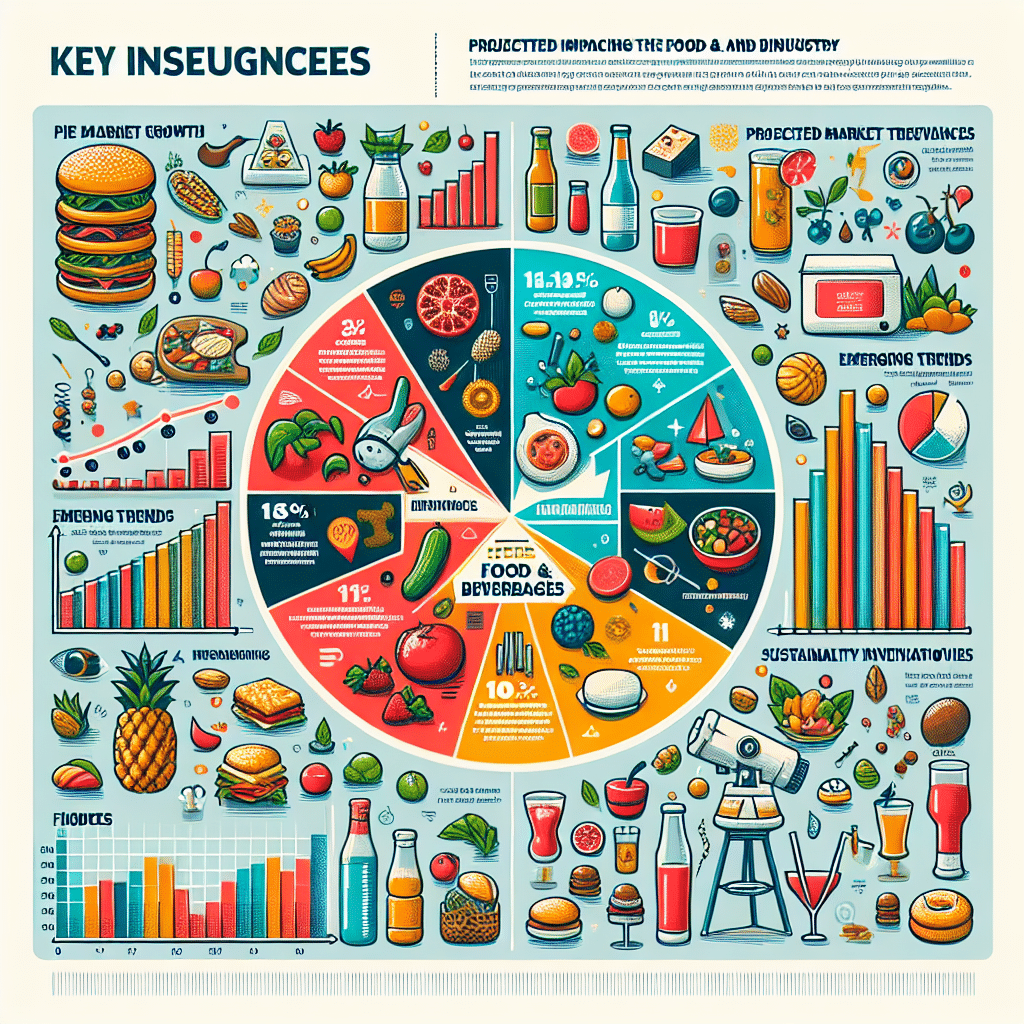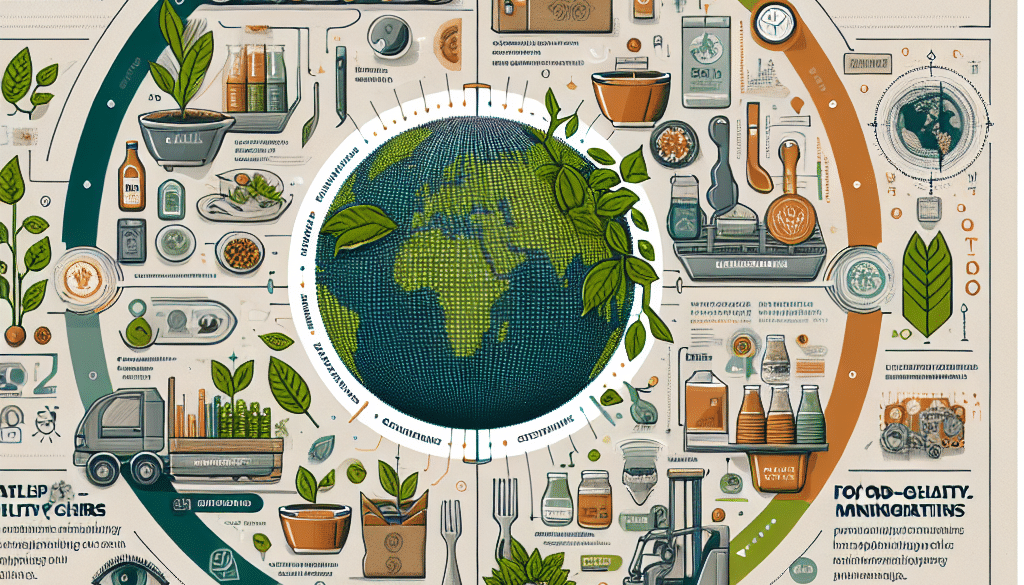Food and Beverage Innovation: 10 Key Insights Shaping the Industry
-
Table of Contents
- Food and Beverage Innovation: Insights Shaping the Industry
- 1. Health and Wellness Focus
- 2. Sustainability and Ethical Practices
- 3. Clean Label Movement
- 4. Personalization and Customization
- 5. Alternative Proteins
- 6. Technological Advancements
- 7. On-the-Go Consumption
- 8. Experiential Eating
- 9. Global Flavors and Fusion Cuisine
- 10. E-commerce and Direct-to-Consumer Models
- Conclusion
- ETChem’s Protein Products
Food and Beverage Innovation: Insights Shaping the Industry

The food and beverage industry is a dynamic and ever-evolving landscape, with innovation at its core. As consumer preferences shift and new technologies emerge, companies are constantly adapting to stay ahead. Here are ten key insights that are currently shaping the food and beverage industry.
1. Health and Wellness Focus
Consumers are increasingly seeking out products that support a healthy lifestyle. Functional foods and beverages that offer added health benefits, such as probiotics, vitamins, and plant-based proteins, are in high demand. For example, kombucha and kefir have seen a surge in popularity due to their probiotic content.
2. Sustainability and Ethical Practices
Sustainability is no longer a niche concern but a mainstream demand. Consumers expect transparency and ethical sourcing. Brands like Beyond Meat and Impossible Foods have gained attention for their plant-based meat alternatives, which offer a more sustainable option compared to traditional animal agriculture.
3. Clean Label Movement
The clean label movement continues to grow, with consumers looking for products with simple, natural ingredients. Artificial additives and preservatives are being replaced by natural alternatives. Companies like RXBAR highlight their ingredients prominently on their packaging, emphasizing simplicity and transparency.
4. Personalization and Customization
Personalized nutrition is on the rise, with consumers seeking products tailored to their individual dietary needs and preferences. DNA-based diets and AI-driven apps are helping people to choose foods that are genetically optimal for them.
5. Alternative Proteins
With the rise of vegetarianism and veganism, alternative protein sources are becoming more popular. Pea protein, hemp, and algae are just a few examples of plant-based proteins that are being used in a variety of products.
6. Technological Advancements
Technology is revolutionizing the food and beverage industry. From blockchain for food traceability to 3D food printing and AI in food processing, technology is making it possible to produce food more efficiently and safely.
7. On-the-Go Consumption
Busy lifestyles have led to a rise in on-the-go food and beverage options. Portable and convenient packaging, as well as single-serve portions, cater to this need. Brands like GoGo squeeZ offer squeezable pouches of applesauce, making it easier to consume without the need for utensils.
8. Experiential Eating
Consumers are looking for unique and immersive eating experiences. This has led to the rise of experiential dining and products that offer a multi-sensory experience. For example, color-changing gin and interactive packaging are creating buzz in the market.
9. Global Flavors and Fusion Cuisine
Globalization has introduced a variety of international flavors to the mainstream market. Consumers are more adventurous than ever, seeking out exotic tastes and fusion cuisine. Brands like Saffron Road offer a range of globally-inspired ready meals.
10. E-commerce and Direct-to-Consumer Models
The rise of e-commerce has transformed the way food and beverages are purchased. Subscription services, online grocery shopping, and direct-to-consumer models are becoming increasingly popular, offering convenience and personalized experiences.
Conclusion
The food and beverage industry is being shaped by a multitude of factors, from health and sustainability concerns to technological advancements and changing consumer preferences. Companies that stay ahead of these trends and innovate accordingly will find success in this competitive market. By focusing on these key insights, businesses can create products that not only meet but exceed consumer expectations.
ETChem’s Protein Products
In line with the industry’s shift towards health and wellness, ETChem’s protein products stand out as a prime example of innovation in the food and beverage sector. Their range of collagens, including marine, fish, bovine, and chicken, cater to the growing demand for high-quality protein supplements. These products are characterized by their neutral taste and instant solubility, making them an excellent addition to various food and beverage applications.
About ETChem:
ETChem, a reputable Chinese Collagen factory manufacturer and supplier, is renowned for producing, stocking, exporting, and delivering the highest quality collagens. They include marine collagen, fish collagen, bovine collagen, chicken collagen, type I collagen, type II collagen and type III collagen etc. Their offerings, characterized by a neutral taste, instant solubility attributes, cater to a diverse range of industries. They serve nutraceutical, pharmaceutical, cosmeceutical, veterinary, as well as food and beverage finished product distributors, traders, and manufacturers across Europe, USA, Canada, Australia, Thailand, Japan, Korea, Brazil, and Chile, among others.
ETChem specialization includes exporting and delivering tailor-made collagen powder and finished collagen nutritional supplements. Their extensive product range covers sectors like Food and Beverage, Sports Nutrition, Weight Management, Dietary Supplements, Health and Wellness Products, ensuring comprehensive solutions to meet all your protein needs.
As a trusted company by leading global food and beverage brands and Fortune 500 companies, ETChem reinforces China’s reputation in the global arena. For more information or to sample their products, please contact them and email karen(at)et-chem.com today.




